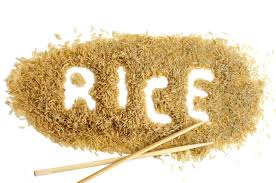Dietary requirements are based on a balance of nutrients in specific ratios that will support healthy body functions. Although carbohydrates are used in excess in many processed and packaged foods, there is a great misconception about the importance of grains for aiding this essential physiological balance. While many people assume that whole grain rice fits into the carbohydrate category, it is actually a viable source of protein, especially in the vegetarian diet.
 Whole grain rice protein is minimally processed compared to the polished and bleached seeds that are common at the grocers. It contains about 20% protein, which is twice as much as regular rice, but also carries a number of other essential minerals and vitamins that are necessary for efficient function. As a supplement, it can provide for a good foundation in diets where animal proteins are sparse, and also carries the benefit of balancing blood sugar for lasting energy
Whole grain rice protein is minimally processed compared to the polished and bleached seeds that are common at the grocers. It contains about 20% protein, which is twice as much as regular rice, but also carries a number of other essential minerals and vitamins that are necessary for efficient function. As a supplement, it can provide for a good foundation in diets where animal proteins are sparse, and also carries the benefit of balancing blood sugar for lasting energy
Whole grain rice protein is considered in incomplete protein, however, since it is low in the amino acids lysine and isoleucine. Yet, when it is properly combined with other protein sources, such as legumes, it can offer a full spectrum of amino acids, for good muscle growth, effective tissue regeneration, and a clean protein source. One of the greater benefits of whole grain rice protein is that it is easily digested and has a lower allergy sensitivity than many other grains.
In a powdered form, whole grain rice protein can be used to supplement flours in baking, but can also be added raw to health drinks and smoothies. This makes it a versatile boost that supports the replenishment of all tissues and organs. It also regulates healthy metabolism on a cellular and greater physiological level. It is often used by athletes to replenish the muscles after a workout, and to add energy for endurance training.